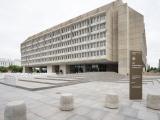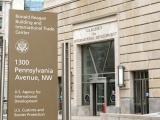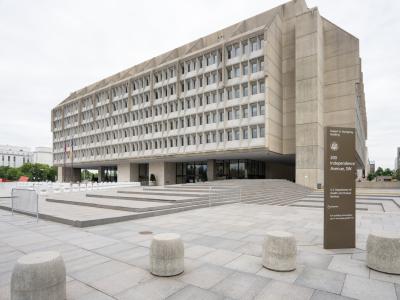Nov 15, 2012 (CIDRAP News) – A Senate committee hearing today on the fungal meningitis outbreak covered some of the same ground as yesterday's House hearing but aired the views of compounding pharmacy industry groups and provided a strong example for strengthening the nation's public health infrastructure.
The hearing took place before the Senate Health, Education, Labor, and Pensions (HELP) Committee. In its investigation into how the outbreak occurred and why regulators failed to prevent the contaminated injectable steroids from infecting patients, the committee on Oct 25 sent letters requesting documents to New England Compounding Center (NECC), the firm that produced the tainted injections, as well as to the Massachusetts Board of Pharmacy and the US Food and Drug Administration (FDA).
So far the tainted methylprednisolone acetate injections from NECC have sickened 461 people and led to 32 deaths, according to an update yesterday from the Centers for Disease Control and Prevention (CDC). The outbreak has provoked scrutiny from Congress over regulatory gaps that appear to allow large, nontraditional compounding pharmacies to skirt safety and quality standards that apply to drug manufacturers.
The Senate hearing was less contentious than yesterday's House hearing, but lawmakers from both parties still had tough questions for federal and state regulators who testified. The committee asked Barry Cadden, NECC's president and co-owner, to appear, but he declined. Yesterday he appeared under a subpoena at the House hearing but refused to answer, citing his Fifth Amendment right to not testify.
Pat Roberts, R-Kan., said members of the HELP Committee have tried several times over the past several years to explore issues related to the pharmacy compounding industry in light of patient safety issues that keep cropping up. He said compounding pharmacies fill an important niche, and he opposes any efforts to ban them.
"However, the recent and repeated loss of life has reiterated the need for appropriate measures to be put in place to ensure that bad actors can no longer take advantage of patients," Roberts said. "Patients have a right to know when they are receiving a product that is not FDA-approved and the risk that may come with using it."
Committee members heard from a CDC official who was involved in the outbreak response, as well as a Tennessee official who played a key role in connecting the dots between the first illness and the contaminated NECC products. Both described how Public Health Emergency Preparedness (PHEP) cooperative agreements played a crucial role in building capacity and supporting investigators' work.
Marion Kainer, MD, MPH, who directs the Healthcare Associated Infections and Microbial Resistance Program at the Tennessee Department of Health, said her department estimates that a 9-day delay in steroid recall would have led to 59 more infections and at least 5 more deaths just in Tennessee.
She praised the astute Tennessee clinicians who treated the patients and quickly brought their concerns to state officials, as well as response teams that went to great lengths to quickly track down exposed patients, one of whom needed to be found while touring Yellowstone National Park.
Committee Chairman Tom Harkin, D-Iowa, urged his colleagues to beef up public health funding in future budget negotiations. "The more we constrain the budgets of CDC and public health entities, the more we put the public at risk," he said.
Several legislators pressed FDA commissioner Margaret Hamburg, MD, about why the FDA didn't use its existing authorities, even though they are piecemeal, to shut NECC down when it knew there were longstanding problems with the company.
Richard Blumenthal, D-Conn., said both the FDA and the Massachusetts Board of Pharmacy failed to take action. "They [problems at NECC and other compounders] were disasters waiting to happen," he said.
He pointed out that the FDA has greater authority over NECC's sister company Ameridose, due to its registration with the FDA as a drug manufacturer. Ameridose was shuttered recently after federal officials found contamination problems at the facility, even though its drugs haven't been linked to any illnesses.
Blumenthal and other legislators questioned whether the FDA would effectively use any new authorities that Congress might give it.
Hamburg said the FDA is still exploring its own actions in the outbreak events, piecing together what took place over the last decade when other problems surfaced with compounding pharmacies, and reaching out to states to get a better scope of the large, nontraditional facilities that exist. She said the FDA is hosting a meeting to discuss the issues on Dec 19 with pharmacy boards from all 50 states.
David Miller, RPh, executive vice president and chief executive officer of the International Academy of Compounding Pharmacists, testified that that NECC was hiding behind its pharmacy license and acting as an illegal drug manufacturer. "They violated trust and tainted the reputation of pharmacists in every practice setting," he said.
He said it's clear that the Massachusetts pharmacy board failed to do its job and that the FDA is empowered to stop illegal manufacturing; however, he agreed that laws need to be clarified.
Miller assured committee members that his group would work with them to address problems that pose patient safety issues. "As an organization, we're committed to make sure this never happens again," he said.
See also:
Senate HELP committee hearing background
Nov 14 CIDRAP News story "House committee grills FDA over fungal meningitis outbreak"



















